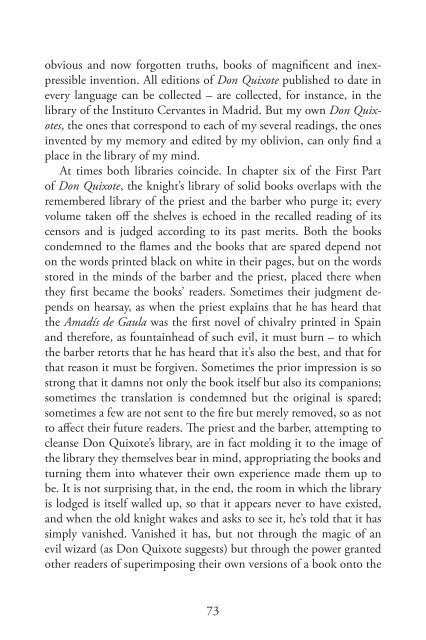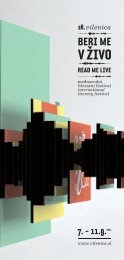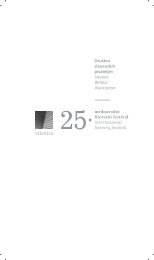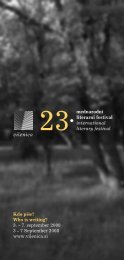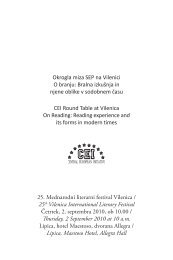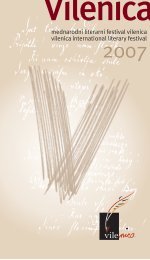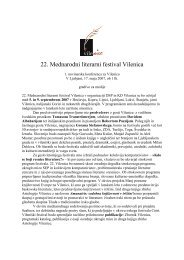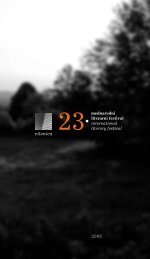Publikacija SEP 2011 - Vilenica
Publikacija SEP 2011 - Vilenica
Publikacija SEP 2011 - Vilenica
Create successful ePaper yourself
Turn your PDF publications into a flip-book with our unique Google optimized e-Paper software.
obvious and now forgotten truths, books of magnificent and inexpressible<br />
invention. All editions of Don Quixote published to date in<br />
every language can be collected – are collected, for instance, in the<br />
library of the Instituto Cervantes in Madrid. But my own Don Quixotes,<br />
the ones that correspond to each of my several readings, the ones<br />
invented by my memory and edited by my oblivion, can only find a<br />
place in the library of my mind.<br />
At times both libraries coincide. In chapter six of the First Part<br />
of Don Quixote, the knight’s library of solid books overlaps with the<br />
remembered library of the priest and the barber who purge it; every<br />
volume taken off the shelves is echoed in the recalled reading of its<br />
censors and is judged according to its past merits. Both the books<br />
condemned to the flames and the books that are spared depend not<br />
on the words printed black on white in their pages, but on the words<br />
stored in the minds of the barber and the priest, placed there when<br />
they first became the books’ readers. Sometimes their judgment depends<br />
on hearsay, as when the priest explains that he has heard that<br />
the Amadís de Gaula was the first novel of chivalry printed in Spain<br />
and therefore, as fountainhead of such evil, it must burn – to which<br />
the barber retorts that he has heard that it’s also the best, and that for<br />
that reason it must be forgiven. Sometimes the prior impression is so<br />
strong that it damns not only the book itself but also its companions;<br />
sometimes the translation is condemned but the original is spared;<br />
sometimes a few are not sent to the fire but merely removed, so as not<br />
to affect their future readers. The priest and the barber, attempting to<br />
cleanse Don Quixote’s library, are in fact molding it to the image of<br />
the library they themselves bear in mind, appropriating the books and<br />
turning them into whatever their own experience made them up to<br />
be. It is not surprising that, in the end, the room in which the library<br />
is lodged is itself walled up, so that it appears never to have existed,<br />
and when the old knight wakes and asks to see it, he’s told that it has<br />
simply vanished. Vanished it has, but not through the magic of an<br />
evil wizard (as Don Quixote suggests) but through the power granted<br />
other readers of superimposing their own versions of a book onto the<br />
73


